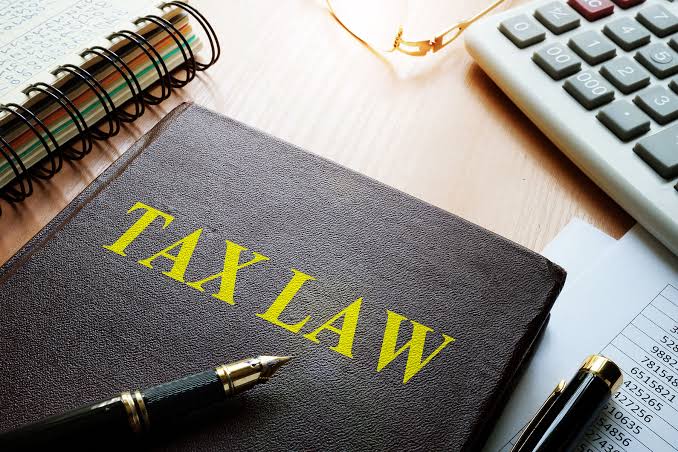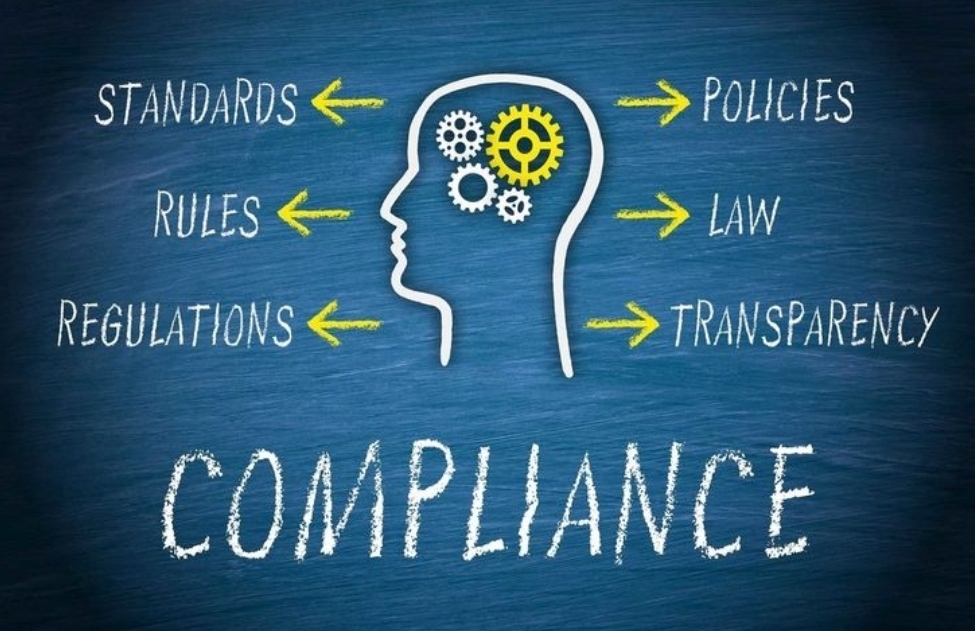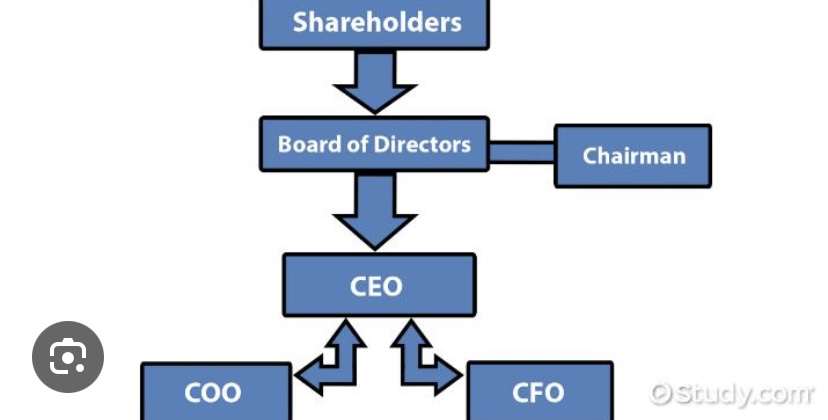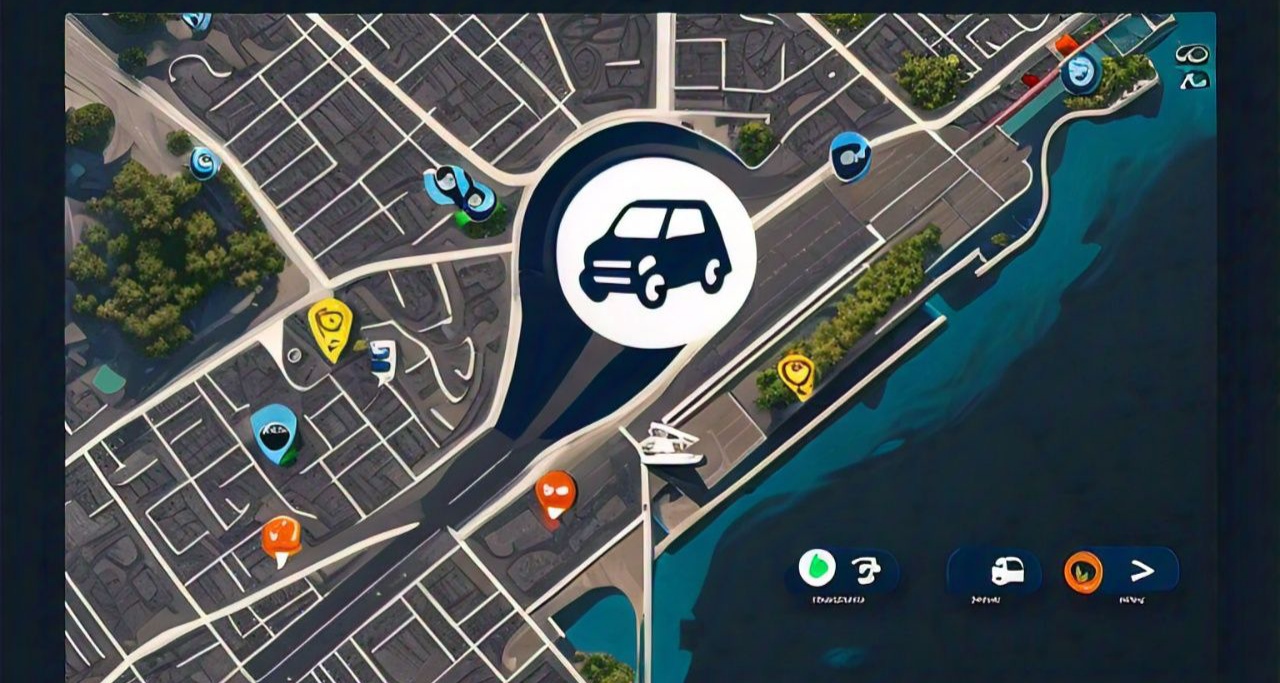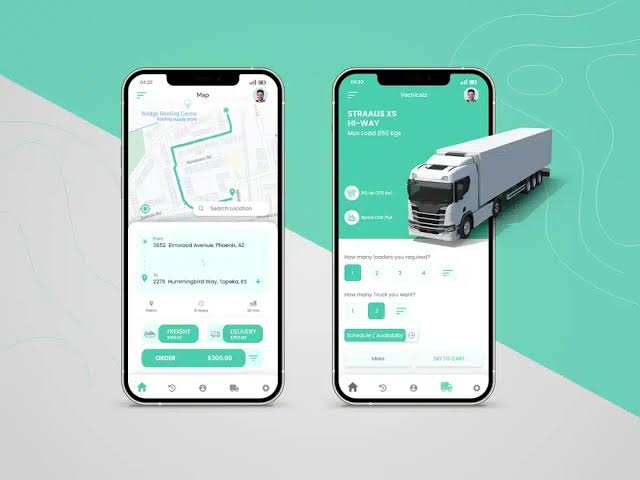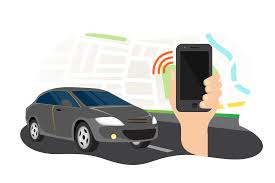
E-hailing is a mode of transportation that uses digital platforms to connect passengers with vehicle drivers. It is commonly known as ride-booking services. This technology enables users to book rides using a mobile app or website, connecting them with drivers for transportation. E-hailing tech startups develop and operate these platforms, providing services such as:
1. Ride-hailing (e.g., Uber, Taxify, Indrive)
2. Food delivery (e.g., Uber Eats, Jumia Food)
3. Logistics and package delivery (e.g., Gokada, Max.ng)
4. Vehicle rental services (e.g., car-sharing or bike-sharing platforms)
These businesses have grown in recent times and are fast becoming a major part of transportation mediums in Nigeria.
Lagos State which serves as the de-facto Commercial and Financial Big Brother in the Nigerian Economic system has seen an influx of these businesses, for which it has gotten a good reputation and where it seems to be a thriving business sector. To be part of this new growing trend, there are criteria which must be met before an individual or corporation can be permitted to carry on such businesses.These criteria are regulated formerly by Guidelines for Online Hailing Business Operation of Taxi in Lagos State of 2020 now governed by the Amended Regulation for On-Line Hailing Business and Taxi Cab Operation in Lagos State. 2023.
The rise of e-hailing technology has transformed the transportation sector globally, and Nigerian entrepreneurs are keen to capitalize on this trend. However, there are certain guidelines that must be met in order to successfully set up an e-hailing tech. As a legal advisor, I will be providing the required guidelines, addressing business structure, legal requirements, intellectual property protection, potential challenges and necessary licenses.
- What type of business structure is most suitable for an e-hailing tech startup in Nigeria?
In Nigeria, knowing the best business structure that suits the idea you have in mind is a big flex as there are several business structures you can choose from, each with its own benefits and drawbacks as all of these structures are only suitable for certain kinds of businesses.
Amongst the different business structures ranging from sole proprietorship to Partnerships, Limited Liability Companies, Public Limited Companies, etc. A Limited Liability Company is the most suitable option for a tech startup and is also a popular choice for many businesses in Nigeria.
It is a separate legal entity from its owners, meaning the company itself can own property, incur debt, and be sued in its own name. Owners’ liability is limited to their shares in the company.
LLCs are suitable for businesses that are looking to scale and need a more formal structure to attract investors. This includes startups, tech companies, and medium-sized enterprises.
An advantage of this structure is that owners’ personal assets are protected from business debts and claims. And LLCs can raise funds more easily by selling shares to investors.
In addition, it is important to note that LLCs are subject to more regulatory requirements and oversight compared to Sole Proprietorships and Partnerships.
2. Legal requirements and regulations that startups should comply with.
As a result of the different business structures, it is important to note that the compliance requirements for each structure also differs. Formal compliance of companies with legal regulations is important to avoid defaults or penalties in the hands of the authorities. This means tech start-ups must check with their compliance advisors to confirm whether their businesses fall under a regulated industry that has a minimum share capital requirement before incorporation with the Corporate Affairs Commission (CAC), so as to be able to meet up with legal compliance expected of them.
Here are some compliance requirements for Tech start-ups in Nigeria;
Business registration
The Corporate Affairs Commission (CAC) is a body established to regulate the incorporations, running and winding up of companies, business names, etc, in accordance with the provisions of CAMA, 2020. Companies are expected to make and file annual returns and audited financial reports with the CAC. However, a newly registered company is not required to file annual returns in the if its incorporation or the following year if its first annual general meeting (AGM) is held within 18 months of its incorporation and subsequently on a yearly basis. Failure to comply with this would leave the company open to penalties and the possibility of it being struck off the CAC database.
Tax Registration and Compliance
Once the business is registered, and intellectual property protected, the next step is to obtain a Tax Identification Number (TIN) from the Federal Inland Revenue Service (FIRS) and this must be done within six months of its incorporation. The TIN is essential for tax compliance and technology development firms are subject to corporate income tax. Value Added Tax (VAT) may also apply to certain transactions. It is important to note that understanding these tax obligations is crucial for smooth operations.
Data Protection and Privacy
Tech firms must comply with the Nigeria Data Protection Regulation (NDPR) with regard to safeguarding user data and privacy and as well implement data protection policies and practices to prevent data breaches and unauthorized access. Another regulation for data protection is the National Information and Technology Agency(NITDA) Act which empowers National Information and Technology Agency to issue guidelines to cater to electronic governance and monitoring of the use of electronic data exchange. This brought about the development of the Nigeria Data Protection Regulation 2019 issued by NITDA.
The Cybercrimes Act is another regulation which criminalizes data privacy breaches. It imposes an obligation on tech companies/anyone or service provider in possession of any person's personal data shall take appropriate measures to safeguard such data. This can be achieved by storing and retaining subscriber information for a period of two years.
Intellectual Property Protection
The heart of any technology development firm lies in its Intellectual Property.
Protecting intellectual property is crucial for businesses operating in Nigeria. The Nigerian Copyright Commission (NCC) is responsible for copyright protection, while the Trademarks, Parents, and Designs Registry oversees trademark, patent and industrial design registrations. To safeguard their IP, businesses should consider registering trademarks, patents, and copyrights to prevent unauthorized use.
Employee Relations
Tech start-ups are required to adhere to Nigerian Labour Laws when hiring and managing employees, ensure compliance with employment contracts, benefits and workplace safety regulations.
Nigerian Investment Promotion Commission (NIPC)
When a tech startup intends for foreign investors to participate in the business by way of shareholding or the likes, it will need to register with the NIPC and obtain a business permit from the ministry of interior, after incorporation but before commencing business activities.
In addition, as a result of the new guidelines released by the NIPC for the application for Pioneer Status Incentives in Nigeria to encourage and attract investments into the ICT sector of the economy. It is important for tech start-ups to know the benefits(tax holiday and tax losses) introduced and to take advantage of them.
They must also take note of specific guidelines that have been laid down by the sector they belong to in the economy. It is essential for businesses operating in such sectors to obtain the necessary licenses, comply with regulatory standards and stay updated with any changes or requirements.
3. How can a start-up protect its Intellectual Property?
In the competitive world of start-up businesses, intellectual property plays a significant role in securing a company's innovations, branding, and creative works. Therefore, it is important that they take steps to ensure effective management and protection of their IP assets as it sets up a defensive wall against competitors. Protecting your IP is easier in the early startup stages when you’re still laying the groundwork. Once your business takes off and is seeing great levels of success, it’s a lot harder to protect it.
Four ways to protect your IP’s include;
- Trademarks - a trademark is a brand name or logo specific to that brand alone. To establish a trademark, ensure that the name of the logo you intend to use is not already in use by another entity.
- Copyright - copyright covers any original work of creation or authorship that includes some level of individual expression.
- Patent - a patent is a type of intellectual property that gives the owner of the patent the power to prevent others from creating, using or selling an invention for a period of time.
- Trade secret - a trade secret is any information you have within your start-up that could give a competitor an advantage.
In the case of an e-hailing tech start-up seeking to safeguard its mobile app and business structure, it should ensure to register the app with the Nigerian Copyright Commission (NCC), file for a patent with the Nigerian Patent and Trademarks Office(NPTO), and implement non-disclosure agreement(NDAs) for employees and partners.
4. What are the potential risks and challenges associated with operating an e-hailing tech start-up in Nigeria?
In recent years, the e-hailing ride-sharing industry in Nigeria has faced significant challenges due to government regulations that pose a substantial risk to the survival and even elimination of market participants. According to Uber, there has been a consistent growth in total demand in Nigeria. This growth may be attributed to the implementation of effective and cost-efficient tactics by the company to address the prevalent needs of customers in a highly competitive sector (Clayton; Dillon; Hall & Duncan, 2016). The company utilizes mobile taxi applications, which have shown a significant growth in Lagos State and Federal Capital Territory Abuja (Uber Technology, 2016a).
According to Johnson, Dunn, and Sack (2020), e-hailing mobility services in Nigerian cities have distinct problems, particularly because of the ongoing uncertainty surrounding the legal environment. The initial endeavors to establish regulations for the ride-hailing business have engendered significant controversy, resulting in strained relationships between service providers and regulatory bodies within urban areas of Nigeria. Moreover, Benjamin (2020) highlighted that instances have been documented where authorities affiliated with In contrast, Omilana (2020b) has observed that discrepancies in regulatory measures for traditional taxi cabs and e-hailing operators have led to increased tensions. The government's suggested licensing prerequisites and the proposed imposition of a 10% tax on e-hailing trip transactions are anticipated to exert substantial strain on the viability of e-hailing business models and the economic well-being of riders. Instances of automobile theft, kidnapping, and fatalities involving drivers and passengers have been documented. Oseni (2021) has identified other problems, such as the problem of unreliable internet access during the initiation and effective completion of an e-hailing transaction. The prevalence of internet fraud has resulted in a reluctance among a majority of drivers to utilize their online mobile banking applications for making payments for e-hailing services. Instead, they choose for cash payments, thus undermining the potential of e-hailing services to contribute to the advancement of smart city initiatives.
5. What are the necessary licenses and permits required to operate an e-hailing service in Nigeria?
In addition to the legal/regulatory compliance listed above, some of the licenses an e-hailing service needs to have includes;
- Business registration with the Corporate Affairs Commission (CAC)
- NCC license for digital platforms
- FRSC permit for transportation services
- State-specific permits (e.g., Lagos State Ministry of Transportation).
In Lagos state, some guidelines have been stated in the Guidelines for Online Hailing Business Operation of Taxi in Lagos State of 2020 which are;
- Company Registration: Register with the Corporate Affairs Commission (CAC).
Minimum issued share capital; ₦1,000,000 for a local company and ₦100,000,000 if a foreigner is a shareholder or director.
- Licensing; Service Entity Permit: For app owners or platform providers and Operator’s Provisional License: For those who own and operate both the vehicles and the app.
- Driver and Vehicle Documentation. Drivers - must have a valid driver’s license, must have a Lagos State Residents Registration Agency (LASRRA) card, must possess a Lagos State Drivers’ Institute (LASDRI) certificate and card. Vehicles - must have a title or manufacturer’s certificate of origin, must have a bill of vehicle sale or vehicle lease agreement, must have a taxicab license (hard card), special plate number, proof of ownership, pre-registration inspection certificate, roadworthiness certificate, comprehensive insurance policy, vehicle license, hackney permit, approved route document (body tag), and driver’s badge.
- Data Sharing and Compliance - share data with the Lagos State Government and comply with API integration for security and safety monitoring
Finally, launching a successful e-hailing tech startup in Nigeria requires careful consideration of legal requirements, intellectual property protection, and potential challenges. By following this guide, entrepreneurs can navigate the regulatory landscape and establish a thriving e-hailing service in Nigeria.
References:
2.https://charislegalpractice.com.ng/author/tosinomotosho/
3.https://omaplex.com.ng/nigerian-tech-start-ups-the-meaning-and-compliance-requirements/
6. Compliance Requirements for Setting Up a Ride-Hailing Business in Lagos, Nigeria




